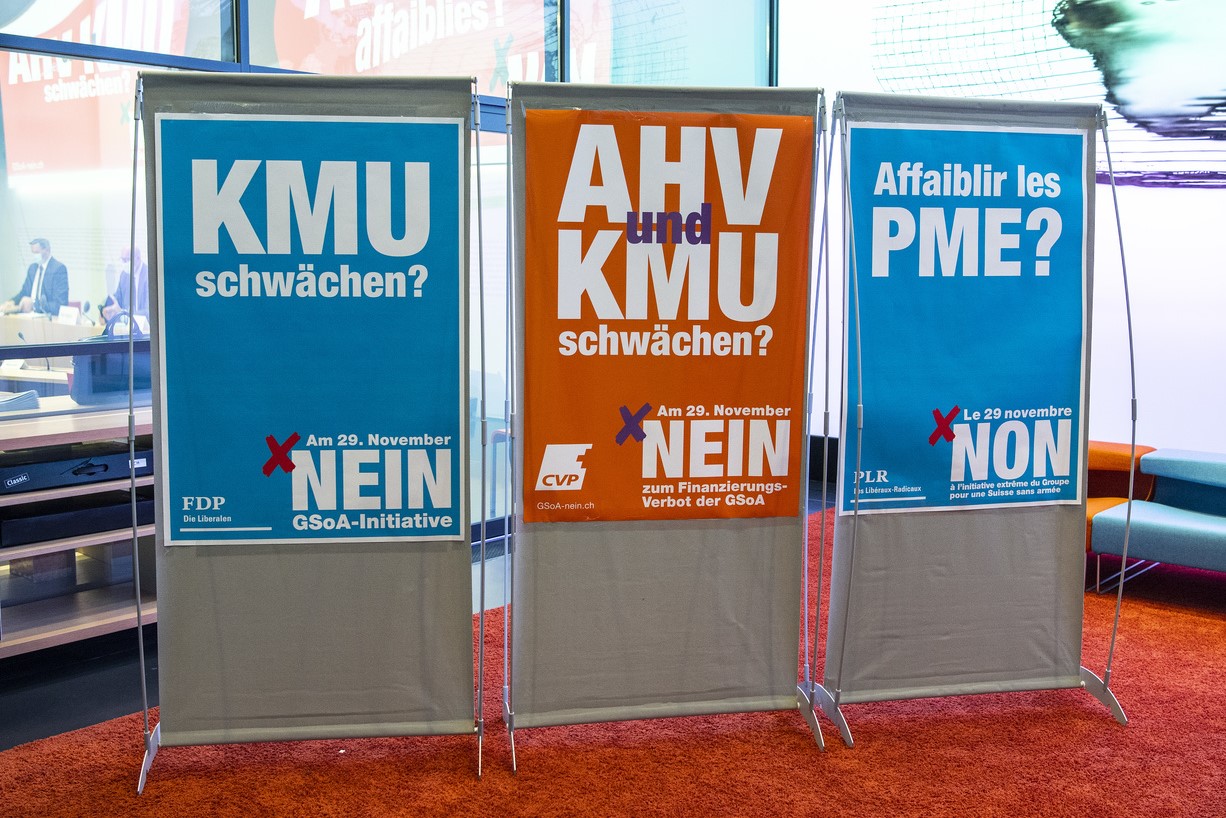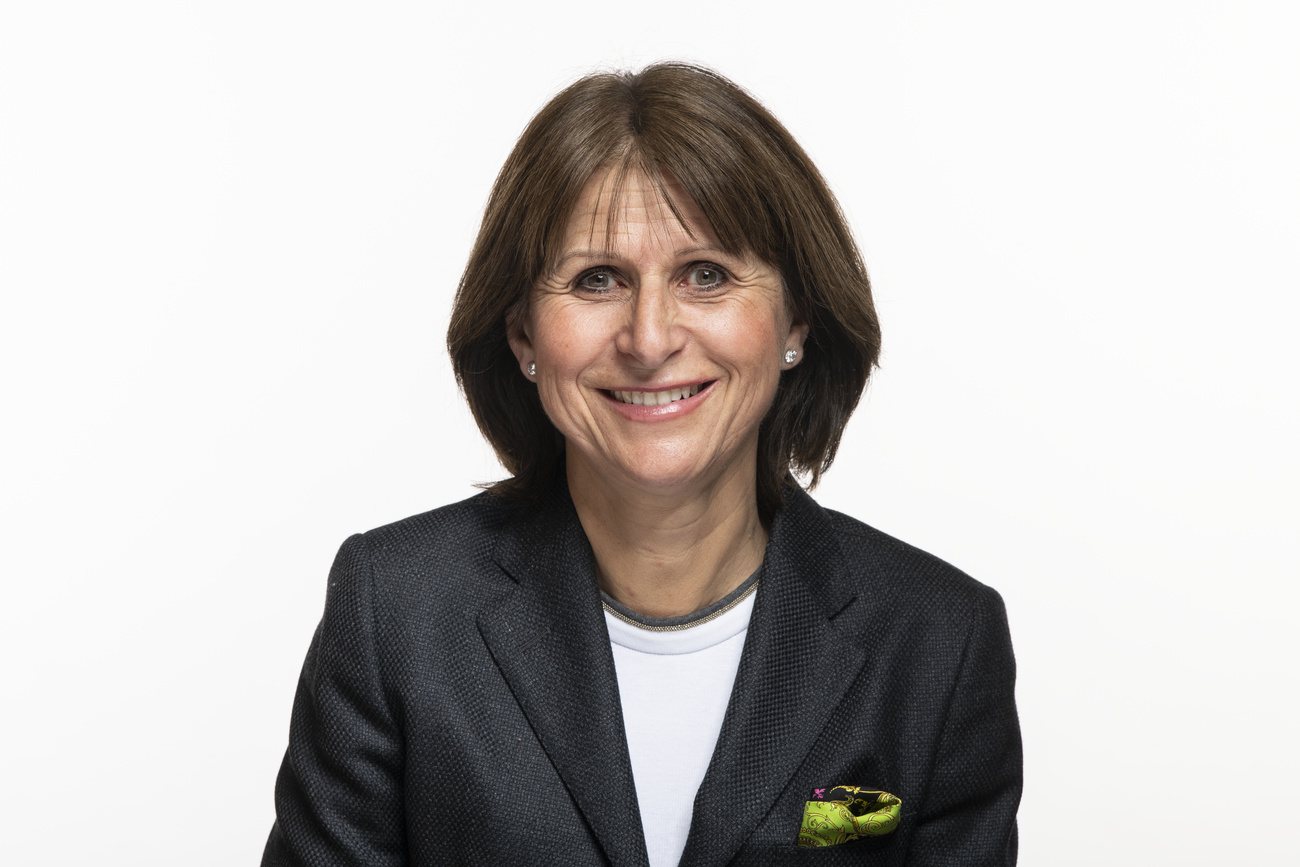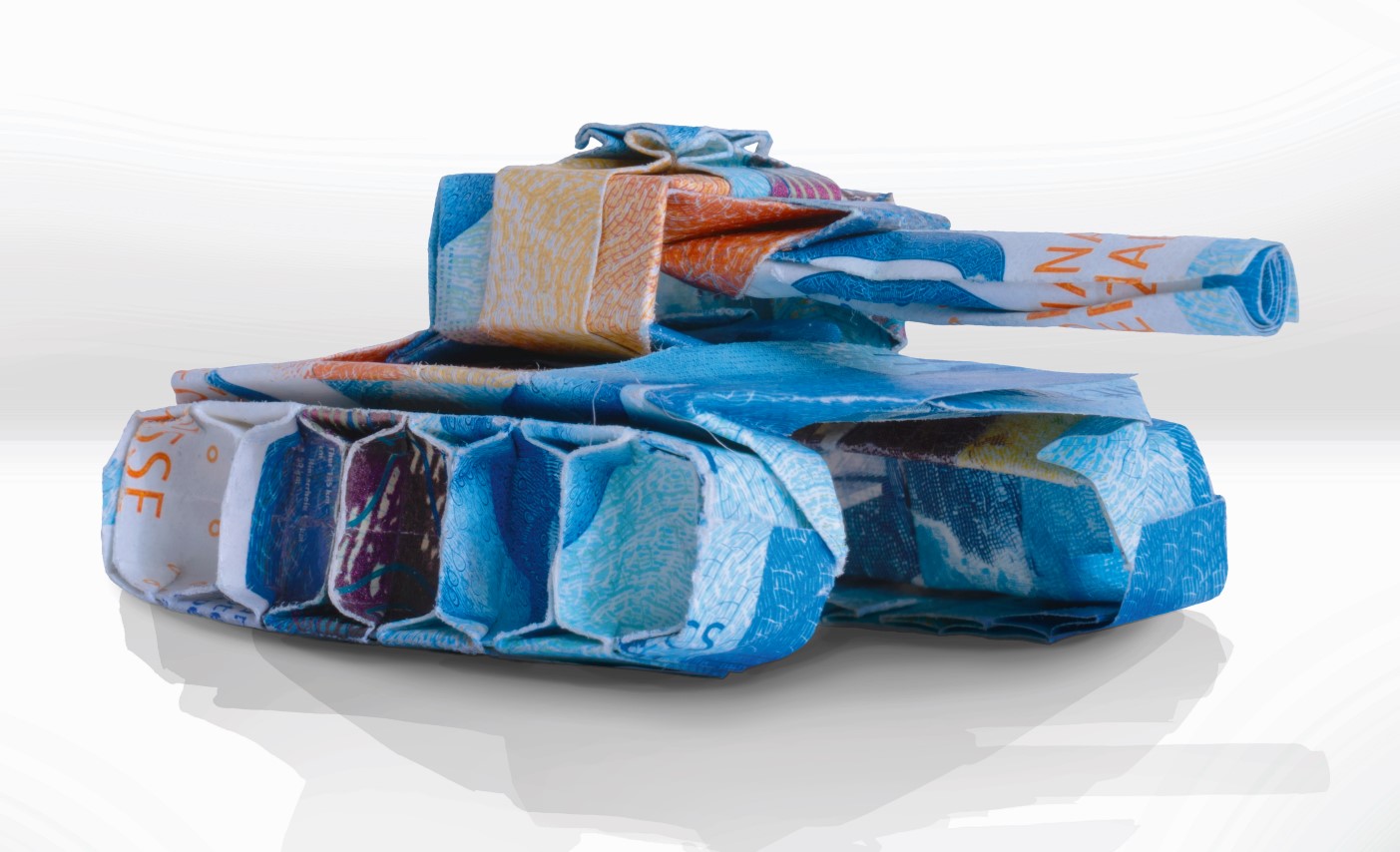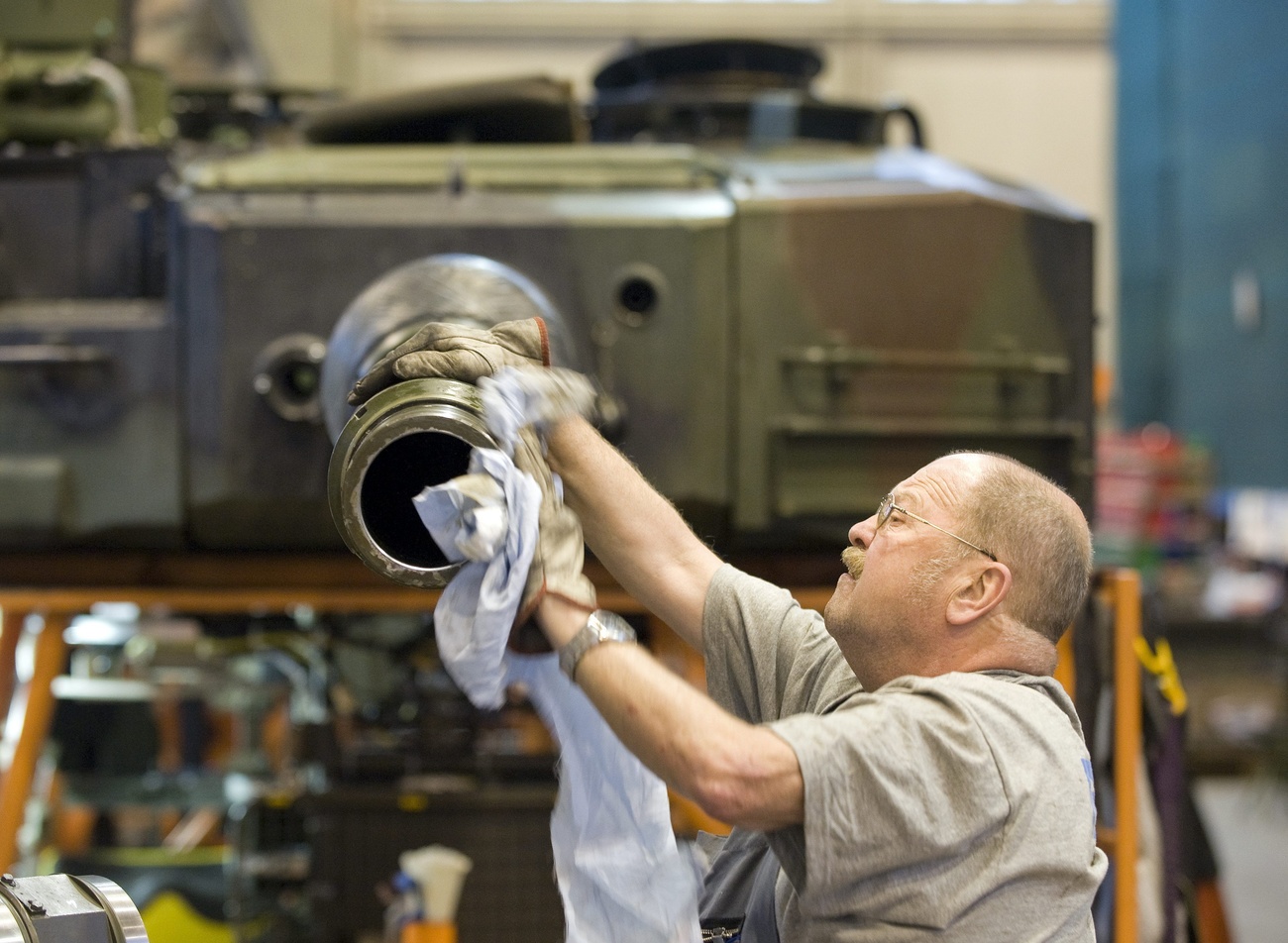
Opponents say anti-arms investment plan would hit small firms

Opponents of an anti-arms investment initiative say the proposal is unrealistic and could lead to job cuts. The issue will come to a nationwide vote on November 29.
The left-wing initiative wants to prohibit the Swiss National Bank (SNB) as well as Swiss foundations and pension funds from investing in producers of war materiel, particularly global weapons manufacturers.
Christine Bulliard-Marbach, a parliamentarian for the centrist Christian Democratic Party, says the proposed constitutional amendment is damaging for the Swiss National Bank, the state old age pension system and to Switzerland as a financial centre.
She argues that Swiss companies already follow a code of ethics.
swissinfo.ch: You have accused the pacifist group of ‘dictating its own law and imposing an extremely rigid quota worldwide’. Would approval of the initiative really have an impact at the global level?
Christine Bulliard-Marbach: The promoters of the initiative take aim at the international arms industry; their goal is clearly global disarmament.

But we must be realistic, Switzerland is a small country, and even if, as the initiative demands, investments in producers of war materiel were to be banned, this wouldn’t create a more peaceful world.
swissinfo.ch: Your campaign highlights the damaging impact of this initiative on Swiss SMEs (small and medium-sized enterprises). Why would SMEs be particularly affected?
C.B.-M.: The initiative aims to ban investments in the armaments industry, for example in producers such as Ruag, but also in subcontractors. SMEs would be affected, because many of them work as subcontractors even if they do not directly produce war materiel.
The company Glastroesch, for example, manufactures special glass for fighter aircraft. And Franke produces sanitary fittings as well as special coatings used by the arms industry. This shows that SMEs would be penalised, and it also puts jobs at risk.
These companies would also lose business, because the initiative has set strict criteria: any company which generates more than 5% of its annual turnover with war materiel is directly affected.
This limit does not make sense, as a lot of SMEs would no longer be able to compete.
swissinfo.ch: Do you have an estimate of the number of SMEs that would be affected?
C.B.-M.: It’s difficult to give exact figures, because the 5% limit can vary. Some companies would be considered weapons producers one year but not the following year.
It is obvious that the mechanism of the initiative is far from reality and that this limit has been set arbitrarily.
It is also complicated to estimate how many jobs would be at risk. It would certainly affect companies in the labour intensive electronics or metal industries.

More
Pacifist group slams Swiss investment in global arms industry
swissinfo.ch: If the initiative is accepted, you are concerned about a weakening of the Swiss pension system. Why would this happen?
C.B.-M.: The initiative would hamper the options of the state old-age pension system and other pension funds, as it would make it impossible to invest in differentiated products.
The investments of old-age pension funds are strictly controlled. They do not finance companies that violate human rights. Ethical criteria already exist and are very well respected. Investments in nuclear, biological or chemical weapons, for example, are already prohibited by Swiss law.
swissinfo.ch: You also say that the independence of the Swiss National Bank (SNB) would be called into question. How can this be?
C.B.-M.: The independence of the SNB is enshrined in the constitution. If the initiative were to be accepted, the bank would be restricted in its investment strategies and that would go against the constitution.
The bank would no longer be able to act in accordance with its mandate, which is to guarantee price stability. And this would open the door to further political restrictions of the SNB’s activities.
swissinfo.ch: What impact would the initiative have on the Swiss financial centre?
C.B.-M.: The current financial policy also aims to make sustainable and ethical investments. A great deal of effort has been made in recent years by the Swiss financial centre, and this has been recognised.
The definition of a producer of war materiel imposed by the initiative is unclear and does not correspond to the reality of many companies. It would therefore have an impact on the Swiss financial centre, which is already a pioneer in terms of sustainable investments.
swissinfo.ch: Several European financial institutions have already opted for investments that exclude the armament industry. Why can’t the SNB and Swiss pension funds take this step?
C.B.-M.: Many Swiss investors have already decided to invest sustainably because it is part of their business strategy.
However, the initiative no longer allows such a policy to be pursued, because the fixed 5% threshold excludes many companies that are not active in the production of war materiel.
And investing in differentiated funds becomes impossible, leading to increased risks and costs for pension funds, the state old age pension system and the SNB. With such rigid criteria, massive controls would have to be put in place, and this would create enormous bureaucracy.
swissinfo.ch: Shouldn’t Switzerland also invest in the cause of world peace?
C.B.-M.: Switzerland is a neutral country with a long humanitarian tradition, which does not contradict a certain freedom of investment.
Our country does not supply weapons to countries at war, and the SNB only invests in companies that respect human rights. Switzerland already has a code of ethics which it strictly observes. It is not by penalising SMEs delivering small aircraft parts that human rights will be better respected.

More
Proposed investment ban targets armament industry
Adapted from French/urs
Adapted from French/urs

In compliance with the JTI standards
More: SWI swissinfo.ch certified by the Journalism Trust Initiative




























Join the conversation!